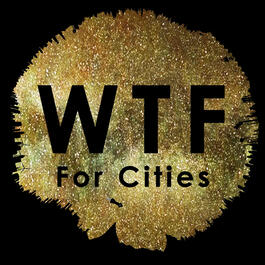
335R_A framework for exploring futures of complex urban energy systems (research summary)
Are you interested in the energy transformation and its effects on cities? Summary of the article titled A framework for exploring futures of complex urban energy systems from 2023, by Sumedha Basu and Catherine S. E. Bale, published in the Frontiers in Climate journal. This is a great preparation to our next interview with Jon Mills in episode 336 talking about energy transitions as one of the driving forces behind urban change. Since we are investigating the future of cities, I thought it would be interesting to see how we could rethink our energy systems for better urban futures. This article recognises current urban energy systems as intricate and interconnected entities with many potential futures. Find the article through this link. Abstract: In order to address the climate crisis and provide citizens with clean, secure and affordable energy, urban energy systems need to transition. This is significant as urban energy systems are increasingly seen as complex systems for their close interactions with local urban society, while being interdependent with higher levels of governance. Decisions taken today will continue to influence the inhabitants of our cities for well over 50 years, locking in energy consumption patterns of the future. How, then, do we make decisions on the interventions needed to bring about a desirable future, and prepare for the probable and possible futures? In this paper, we consider the key characteristics of urban energy systems from a complexity science perspective in order to explore what methodologies in futures and foresight scholarship could be beneficial in supporting urban energy decision-making. To do this we have undertaken an integrative review—a method that allows review, synthesis, critique, and analysis of new and emerging topics across multiple disciplines and multiple literature types—and consider the findings in light of their usefulness in understanding complex systems, which are inherently uncertain. We consider how futures and foresight theories and methods can be applied in urban and energy studies, highlighting examples of where around the world these have been applied by organizations seeking to shape transitions. The many methods and approaches that exist under the futures' umbrella have not been applied to anywhere near their full potential in urban energy studies, despite the limitations of many of the planning and modeling exercises currently used. We use key learnings from existing futures and foresight scholarship, along with our understanding of urban energy systems as complex adaptive systems, to propose a theoretical and practical framework for exploring their futures. The framework encompasses concepts of futures, contextualization, mapping uncertainty, participatory processes, and futures governance. Although there is much further research work needed to test and operationalize this framework in an applied way with city stakeholders, we hope this charts a way forward in addressing the critical challenges faced by urban energy planners and their partners. Connecting episodes you might be interested in:No.222 - Interview with Adam Dorr about energy transformation You can find the transcript through this link. What was the most interesting part for you? What questions did arise for you? Let me know on Twitter @WTF4Cities or on the wtf4cities.com website where the shownotes are also available. I hope this was an interesting episode for you and thanks for tuning in.Episode generated with Descript assistance (affiliate link). Music by Lesfm from Pixabay
From "What is The Future for Cities?"


Comments
Add comment Feedback